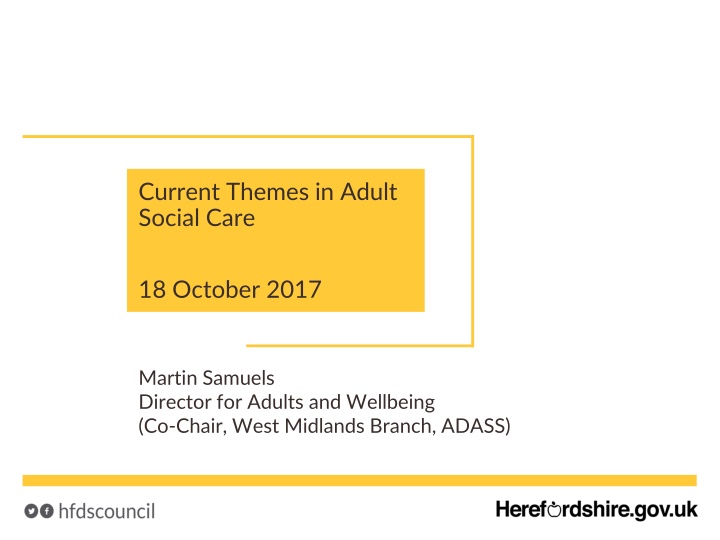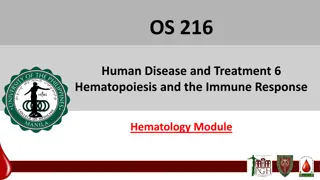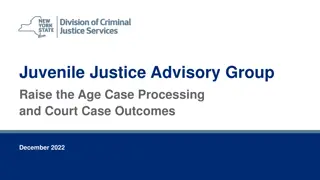
Key Themes in Adult Social Care: Quality, Funding, Integration with NHS
Explore the current themes in adult social care including quality of care, state of the provider market, funding challenges, and integration with the NHS. Learn about critical issues such as staff shortages, reduced funding, and the need for better integration to enhance care provision. Stay informed about the latest developments shaping adult social care services.
Download Presentation

Please find below an Image/Link to download the presentation.
The content on the website is provided AS IS for your information and personal use only. It may not be sold, licensed, or shared on other websites without obtaining consent from the author. If you encounter any issues during the download, it is possible that the publisher has removed the file from their server.
You are allowed to download the files provided on this website for personal or commercial use, subject to the condition that they are used lawfully. All files are the property of their respective owners.
The content on the website is provided AS IS for your information and personal use only. It may not be sold, licensed, or shared on other websites without obtaining consent from the author.
E N D
Presentation Transcript
Current Themes in Adult Social Care 18 October 2017 Martin Samuels Director for Adults and Wellbeing (Co-Chair, West Midlands Branch, ADASS)
Current Themes Quality of Care State of the provider market Funding and Scope From austerity to scarcity Integration with the NHS Divided by a common language Philosophy From care to wellbeing
Quality of Care State of Care Report System at tipping point Number of nursing beds reducing 4000 fewer over past two years Staff shortages for nursing & registered managers 90k vacancies in total Up to 30% staff turnover Most care is good But 31% of nursing homes Requires Improvement or Inadequate Main areas of weakness are governance & leadership Hospitals struggling High demand, delayed discharges, impact on planned care
Funding and Scope Spending on adult social care falling Reduced by 2.6% in cash terms since 2010 One of lowest proportions of GDP in developed world Reduced 6bn (25%+) compared to steady spend per head NHS spending increased by total social care spend ( 16bn+) Consequences Shift in balance towards Learning Disability Now 40% of spend Narrowing to eligible needs only 1.2m older people now not receiving care Ambulance at bottom of cliff Rate of life expectancy growth has reduced
Integration with the NHS - BCF Longstanding recognition of interdependence between NHS and social care Aged 65+ occupy most hospital beds Dementia main cohort of delayed hospital discharges 2/3 of social care referrals from NHS Better Care Fund designed to promote integration Financial transfers from CCGs to councils Plan at level of each HWB 2017/18 Guidance New target to reduce DToC to 3.5% (release 3000 beds) Funding transfer linked to performance in Sept 2017
Integration with the NHS - Issues Episodic Fix broken machine Professional knows best Free National Public sector provision Evidence base Structural merger absorbs energy Lack of clarity over accountability & professional cultures Limited evidence that integrated teams save cash Improved user experience Ongoing Living a good life Choice and control Means-tested Local Private sector provision
Philosophy From Care FACTS ABOUT ADULT SOCIAL CARE THE CARE BUS 1.5% of population c35% of council budget (net) 75% of ASC budget (net) 1/3 residential/nursing, 2/3 community services 2/3 over 65, 1/3 under 65 Dependency THE CARE BUS
Care Duration Average Length of Stay by Gender Male Female % whose needs escalate Nursing 1.1yrs 1.5yrs 0.4 THE CARE BUS 9.2% 7.5% 4% 8% Residential 1.5yrs (96%) 1.7yrs (92%) 0.2 9.4% 9.9% Dom. Care Length of stay & % who die when receive single service 1.3yrs (80.9%) 1.3yrs (83.1%) = THE CARE BUS
Managing Demand Capacity THE CARE BUS Dependency Nursing beds 33% increase required over next 10 years (65 beds+ self funders) Care Workforce 50% extra workers required in the next 10 years By 2034 the over 65s will increase by 45%, or 31% of the total population Over 85s will increase to more than double, to 6% of the total population
The Challenge Culture THE CARE BUS Dependency Social care teams
Reengineering the Bus Long term support and care Short term support and care Primary prevention Targeted prevention Independence THE WELLBEING BUS
Concluding Thoughts Current model is broken Funding, staffing, outcomes Reaching a tipping point Structural integration Limited evidence of impact Realities of organisational culture From care to wellbeing Prevention Empowerment Community capacity & resilience






















